Week One: The Immigrant World of Ybor City and Key West, 1860-1900.
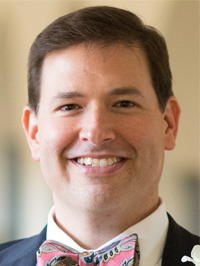
Rodney Kite-Powell is the Director of the Touchton Map Library and the Saunders Foundation Curator of History at the Tampa Bay History Center. He received a Bachelor of Arts from the University of Florida and a Master of Arts from the University of South Florida.
He has written extensively on the history of Tampa and Hillsborough County and is the editor of Tampa Bay History, a regional journal published through a partnership between the History Center and the University of South Florida Libraries. He has also served as an adjunct professor at both The University of Tampa and the University of South Florida, teaching courses on the history of Florida.
His first book, History of Davis Islands: David P. Davis and the Story of a Landmark Tampa Neighborhood, was published in 2013. His latest book, Tampa Bay’s Waterfront: Its History and Development, co-authored with Arthur Savage, was published in 2017.
LECTURE: “The Immigrant Worlds of Ybor City, 1886-1900” (Delivered June 17, 2019)
VIDEO: Rodney Kite-Powell video

Kenya C. Dworkin is a professor of Hispanic studies, with appointments in English, history, global studies, international relations and the Program for Deliberative Democracy at Carnegie Mellon University. Her current book project is Before Latino: How Cuban Theater in Tampa Shaped an American Immigrant Society. Other books include Recovering the U.S. Hispanic Literary Heritage V (5) (Arte Público, 2003), Herencia: The Anthology of U.S. Latino Literature in the United States (Oxford UP, 2003), and En otra voz: Antología de la literatura hispana de los Estados Unidos (Arte Público, 2002). Her most recent articles are “Latin Place Making in the Late 19th & Early 20th Centuries: Cuban Émigrés and their Transnational Impact in Tampa, FL, ELN (October 2018) and “When a "New Deal" Became a Raw Deal: Depression-Era, ‘Latin’ Federal Theatre,” TRANSMODERNITY: Journal of Peripheral Cultural Production of the Luso-Hispanic World (1:1).
LECTURE: "The Cultural World of the Cigar Worker" (Delivered June 18, 2019)
VIDEO: Kenya C. Dworkin video
POWERPOINT PRESENTATION: Kenya Dworkin's PowerPoint presentation

Susan D. Greenbaum is an anthropologist who is retired from the University of South Florida Department of Anthropology. Her research has been divided between 35 years of ethnographic and applied work with members of the Afro-Cuban mutual aid society, La Unión Martí Maceo, and long term research on housing, racism and urban displacement. Regarding the former, she published an extensive monograph titled More than Black: Afro-Cubans in Tampa (U Press of Florida 2002) that won three significant awards. She has published and lectured widely on the topic of black Cuban cigarmaker/independence fighters in Tampa, and about the experiences and contributions of their descendants in the Civil Rights movement and local politics. Her other interest in the effects of racism on housing, neighborhoods. and wealth inequality involves research funded by the National Science Foundation to assess consequences of displacement by the HOPE VI program that demolished most of the public housing in Tampa. She is author of the recent book, Blaming the Poor: The Long Shadow of the Moynihan Report on Cruel Images of Poverty (Rutgers University Press 2015).
LECTURE: “Más que negro: The Anti-Racism of José Martí and the Afro-Cuban Community of Ybor City” (Delivered June 19, 2019)
VIDEO: Susan Greenbaum video
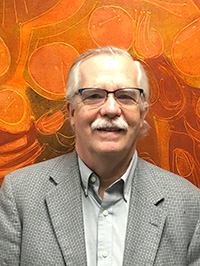
Gerald E. Poyo is O’Connor Professor in the History of Hispanic Texas and the Southwest. In 1983 he received his Ph.D. in Latin American history from the University of Florida. His research has focused on the intersection of Latin American and U.S. Latino history, especially on the history of Cuban exile communities in the United States during the 19th and 20th centuries, the origins of Tejano communities in colonial and Mexican Texas, U.S. Latino Catholic History and Latino history writ large. He is the author and editor of seven books, including ‘With All, and For the Good of All’: The Emergence of Popular Nationalism in the Cuban Communities of the United States, 1848-1898 (Duke University Press, 1989); Cuban Catholics in the United States, 1960-1988: Exile and Integration (University of Notre Dame Press, 2007) and Exile and Revolution: Jose D. Poyo, Key West, and Cuban Independence (Gainesville: University Press of Florida, 2014).
LECTURE: “Key West’s Revolutionary Community, 1868-1898” (Delivered June 20, 2019)
VIDEO: Gerald E. Poyo Video
POWERPOINT PRESENTATION: Gerald E. Poyo's PowerPoint Presentation
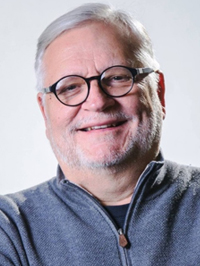
Lisandro Pérez is a professor of Latin American and Latino studies at John Jay College, City University of New York. He was on the faculty of Florida International University for 25 years, where he served for 13 years as director of its Cuban Research Institute, which he established in 1991. He was editor of the journal Cuban Studies, and author of numerous publications on Cuba and Cuban Americans, including The Legacy of Exile: Cubans in the United States (Allyn & Bacon, 2003), co-authored with Guillermo Grenier. His most recent book is Sugar, Cigars, and Revolution: The Making of Cuban New York (NYU Press, 2018), the culmination of years of research on the Cuban community in New York City during the 19th century. The book traces how that community was shaped by both the sugar trade and the long struggle for independence from Spain. Faculty page
LECTURE: “José Martí, New Yorker” (Delivered June 21, 2019)
VIDEO: Lisandro Pérez video
Week Two: José Martí at the Intersection of Empires
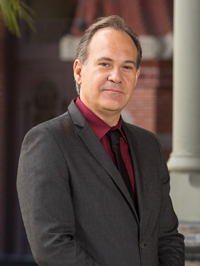
James J. López is professor of Spanish and co-director of the Center for Martí Studies Affiliate at The University of Tampa. Together with Denis Rey, he organized the 2016 UT-USF International Conference “Martí in Tampa,” which for the first time brought together 20 of the top Martí scholars from Cuba, the U.S. and Mexico in a collaborative effort to study the important relationship between the Cuban patriot and the immigrant cigar workers of Ybor City and West Tampa. In 2014, his Spanish-language translation of the Pulitzer-prize winning play Anna in the Tropics by Nilo Cruz, which is set in the cigar factories of Ybor City in the early 20th century, was produced by the renowned Cuban director Carlos Díaz and Teatro El Público and opened concurrently in Havana and Miami Beach with a mixed Cuban and Cuban-American cast. He is also a literary critic specializing in contemporary Latin American narrative, a translator, was twice awarded the College of Arts and Letters Outstanding Teacher of the Year Award and has led numerous study abroad courses to Cuba and Perú. López is a Tampa native and the grandson of cigar workers, including the last living lector, or reader, a position which figures prominently in the history that will be studied during this institute.
LECTURE: “Jose Martí: Life and Works” (Delivered June 24, 2019)
VIDEO: James López video
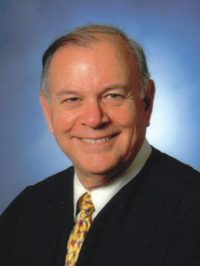
The Honorable Judge Emiliano J. Salcines has been a member of the Florida Bar for the last 50 years. A career federal and state prosecuting attorney for 22 years, he was the elected State (Prosecuting) Attorney in Tampa for 16 years. Besides his B.A. and J.D. degrees, he has two Honorary Doctorate degrees. He was knighted by King Juan Carlos of Spain and received the 2008 Good Government Award from Hillsborough County, which annually awards the E. J. Salcines Lifetime Leadership Award. He received the “Champion of Justice Award” from the Tampa Bay Trial Lawyers Association. Judge Salcines is a recognized authority on the history of Florida. He is a frequent speaker at state and local historical society conferences and conventions. He is a founding member and trustee of the Tampa Bay History Center and former vice president of the Tampa Historical Society. He was president of the West Tampa Centennial Society and chairman of Tampa’s award-winning activities celebrating the 500th anniversary of Christopher Columbus’ discovery of America that brought the replicas of Columbus’ three ships to Tampa Bay. He currently is the U. S. representative on the Board of Trustees of the Museum of Immigration in Spain.
LECTURE: "José Martí in Tampa: 20 Documented Visits” (Delivered June 24, 2019)
VIDEO: Judge Emiliano Salcines Video
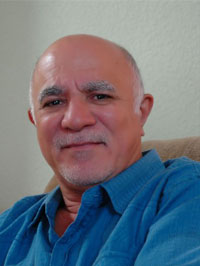
Gabriel Cartaya holds a master’s degree in Latin American, Caribbean and Cuban studies from the University of Havana, where he worked as a professor and researcher. He is a recognized Martí specialist, author of the books Con las últimas páginas de José Martí (Editorial Oriente, Cuba, 1995), José Martí en 1895 (Bayamo, Cuba, 2001) and Luz al universo (Gente Nueva, La Habana, 2006). In 2010 he founded the Revista Surco Sur, a journal dedicated to Latin American art and literature. Its digital edition is published by the University of South Florida. He is the Spanish language editor of La Gaceta newspaper in Tampa, the nation’s only trilingual newspaper (English-Spanish-Italian) that has been published continuously since its establishment in 1922 under the guidance of the iconic Manteiga family.
LECTURE: “Tampa’s Response to José Martí” (Delivered June 25, 2019)
VIDEO: Gabriel Cartaya video

Esther Allen translated, edited and annotated the Selected Writings of José Martí (Penguin Classics, 2002), named a Notable Book of 2002 by the Los Angeles Times Book Review and selected by the Guardian in 2015 as one of the 10 best books for understanding Cuba. A professor in the doctoral programs in French and in Latin American, Iberian and Latino cultures at the City University of New York Graduate Center, and in the Modern Languages Department at Baruch College, CUNY, she is writing a biography of Martí to be published by Henry Holt & Co.
LECTURE: “José Martí as a U.S. Writer” (Delivered June 26, 2019)
VIDEO: Esther Allen Video
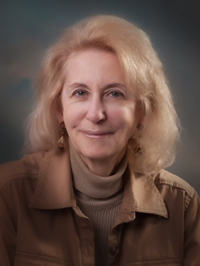
Anne (Anita) Fountain is professor emerita of Spanish at San José State University. Her books about Martí include: José Martí and U.S. Writers (2003); Versos Sencillos: A Dual Language Edition) 2005; José Martí, the United States, and Race (2014); and Ramona: Novela Americana, edición crítica (2018). She has authored numerous articles, chapters and reviews about Martí and Cuban topics and done more than 70 presentations and workshops dealing with Cuba and Martí. Recent publications are: “Teaching the Latin American Emerson" in Approaches to Teaching the Works of Ralph Waldo Emerson, edited by Mark C. Long and Sean Ross Meehan, Modern Language Association, 2018; and “Martí and Emerson: Close Reading, Context, and Translation” in Syncing the Americas: José Martí and the New Modernity, Bucknell University Press, 2017. In addition, she has translated extensively from Cuban authors including Nancy Alonso, Marilyn Bobes, Senel Paz, Leonardo Padura Fuentes and Aida Bahr.
LECTURE: "José Martí and American Thinkers" (Delivered June 27, 2019)
VIDEO: Anne (Anita) Fountain video for "American Thinkers"
LECTURE: "José Martí and Race in America”
VIDEO: Anne (Anita) Fountain video for "Race in America"
Week Three: The Spanish- Cuban-American War: Cuban Independence and U.S. Intervention

Michael L. Conniff, an emeritus professor of history at San Jose State University, earned degrees at UC Berkeley and Stanford and has published books and articles on modern history, most recently Modern Panama (forthcoming 2019, with Gene Bigler) and A New History of Modern Latin America (2017, with Lawrence Clayton and Susan Gauss). He has lived overseas over a dozen years, held several post-docs (including three Fulbright tours), and served in the U.S. Peace Corps. He lectures often in Portuguese and Spanish. Before his current position, he taught history at the University of New Mexico and later created Latin American studies programs at Auburn University and the University of South Florida. He also founded the Global Studies program at San Jose State. He spent spring semester 2014 as the Bacardi Eminent Professor of Latin American Studies at the University of Florida. He won and managed grants and contracts worth $4 million.
LECTURE: “The Spanish-American War and Semi-Independence I and II” (Delivered July 1, 2019)
VIDEO: Michael Conniff Video

John Tone is a professor of history in the School of History, Technology and Society (HTS) at Georgia Tech, where he serves as interim dean of the Ivan Allen College of Liberal Arts. He specializes in Spanish and Cuban military history and the history of medicine. He has written several articles and books, including The Fatal Knot: The Guerrilla War in Navarre and the Defeat of Napoleon in Spain (1995), La guerrilla española (1999), and War and Genocide in Cuba (2006). The Fatal Knot was a selection of the History Book Club and received the Literary Prize of the International Napoleonic Society in 1999. He was inducted as a fellow of the International Napoleonic Society in that same year. War and Genocide in Cuba received the Society for Military History Prize for the Best Book on a Non-US Subject in 2008. His current research is on the history of yellow fever. He has received grants from the Fulbright Foundation, the National Endowment for the Humanities and the American Philosophical Society. He teaches courses on the French Revolution and Napoleon, intellectual history, modern Spain, modern Cuba and the history of medicine.
LECTURE: “War and Genocide in Cuba, 1895-1898” (Delivered July 2, 2019)
VIDEO: John Tone Video
POWERPOINT PRESENTATION: John Tone PowerPoint Presentation
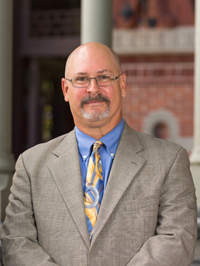
Denis Rey is a political scientist specializing in international relations and Latin American politics. His scholarship has appeared in academic journals such as Global Environmental Politics, Journal of Information Technology and Politics, and Social Science Quarterly. His current research seeks to understand Cuba’s integration into the global economy and how trade affects artistic expression in the Caribbean and Latin America. He has presented his research at the Cuba at the Crossroads symposium at Rollins College; the international conference, Les Partenariats Transatlantique et Transpacifique a l ere de l Interconnexion , organized by Centre D’Estudes Sur L’Integration et la Mondialisation at the University of Quebec at Montreal, Canada; and the Caribbean Studies Association 2017 annual conference in Nassau, Bahamas. Rey, who was born in Cuba, immigrated to the United States in 1968. He has traveled extensively throughout Cuba and has taught courses in Havana that focus on US-Cuba relations.
LECTURE: “The Geopolitical Consequences of the Spanish-Cuban-American War” (Delivered July 5, 2019)
VIDEO: Denis Rey Video
Week Four: Ybor City And Tampa After The War

Gary Mormino is the Frank E. Duckwall professor emeritus in Florida history at University of South Florida-St. Petersburg. He presently holds the position of scholar in residence at the Florida Humanities Council. He earned a dissertation in history from the University of North Carolina and taught at the University of South Florida between 1977 and 2015. His books include The Immigrant World of Ybor City: Italians and Their Latin Neighbors (University of Illinois Press, 1987), co-authored with George Pozzetta, which was awarded the Theodore Saloutos prize for the best book in immigration history. He also wrote Land of Sunshine, State of Dreams: A Social History of Florida (University Press of Florida, 2006), which received the Charlton Tebeau prize for the best book in Florida history. In 2007, PBS and WEDU adapted the book into a documentary, The Florida Dream, which was awarded a regional Emmy. He is also the author of two other volumes: Immigrants on the Hill: Italians in St. Louis (University of Illinois Press, 1986), which was awarded the Howard Marraro Prize for the best book in Italian history, and Spanish Pathways in Florida, 1492-1992 (Pineapple Press, 1992). Mormino has received numerous awards and accolades for his work on Florida history, including being honored with the “Distinguished Author” award by the Florida House of Representatives in 2012, and the 2015 Florida Lifetime Achievement Award in writing. He is presently working on a study of Florida, 2000-2012, a monograph on Florida and WWII, a biography of Millard Caldwell and a history of Florida foodways.
LECTURE: “Ybor City Lives: Wars, Revolutions, Great Depression, Great Society, Urban Renewal, and Americanization” (Delivered July 9, 2019)
VIDEO: Gary Mormino video
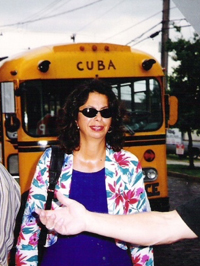
Maura Barrios is a community historian focused on the history of Tampa’s Cuban communities of West Tampa and Ybor City and the connections between Tampa and Cuba. Barrios was curator of the Ybor State Museum exhibit, “Tampa Y Cuba: More Than 100 Years,” 2007. In 2004 she received a major grant from the Florida Humanities Council for the community autobiography project, “Our West Side Stories: Voces de West Tampa, 2005-06.” Barrios earned a master’s degree in Latin American history from the University of South Florida in 1998. She has presented her work at the Latin American Studies Association, Florida International University-Cuban Research Institute, New College, Tampa Bay History Center, Carnegie Mellon University, University of Houston, and Latino Arts and Culture Institute.
LECTURE: “West Tampa: The Living Museum” (Delivered July 9, 2019)
VIDEO: Maura Barrios Video

